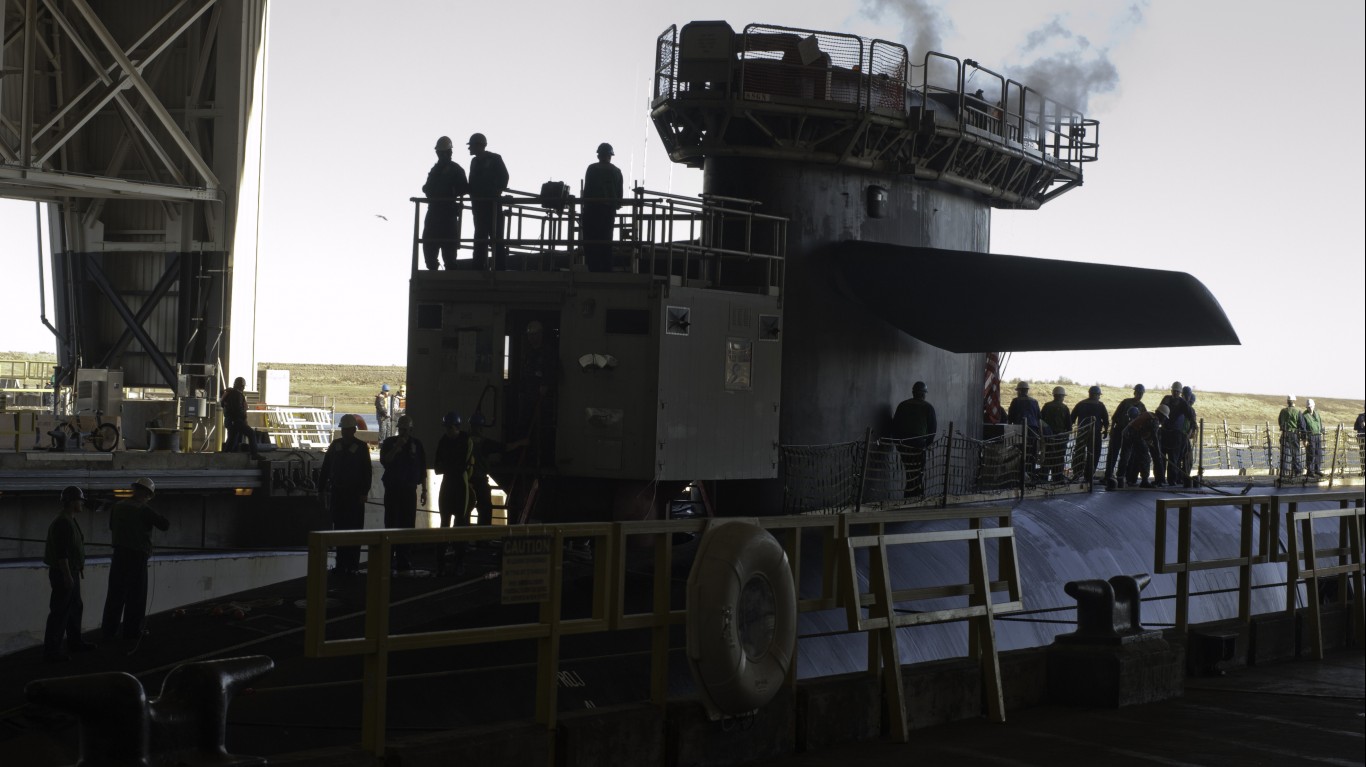
When it comes to modern warfare, submarines are an indispensable asset and they have been since their advent in World War II. At that time, these submersibles carried out covert strikes on Axis and Allied vessels alike, ultimately finding a place for themselves as a tactical necessity in any navy. However, over the years, only the top quartile of naval forces on the planet have accumulated a significant amount of submarines, and most reside within NATO forces. (This nation has the largest navy in the world.)
Less than half of all NATO members own military submarines, but this is a far cry from most other military powers around the world with the exception of Russia and China. Although what makes NATO truly powerful is its combined air force, these submarines add significantly to the alliance and its control of the high seas.
To determine the NATO countries with the most military submarines, 24/7 Wall St. reviewed GlobalFirePower, an annually-updated website tracking defense-related statistics of 145 nations. Countries were ranked by the number of military submarines in active service. We also added the GlobalFirePower PowerIndex score, which denotes a country’s overall military strength, with lower scores denoting greater power. We included supplemental information regarding total naval fleet size per country and the types of submarines in each fleet. We excluded countries that did not have any submarines in their navy.
The United States is host to one of the largest fleets of submarines in the world and one of the most advanced. The subs within its fleet include the Ohio-class, Los Angeles-class and Virginia-class to name a few. The Ohio-class is perhaps the most famous of the group as it carries a significant amount of nuclear warheads that are capable of striking targets thousands of miles away. (The Navy’s hidden arsenal: submarines and hidden military tech of today.)
Here is a look at the NATO countries with the most submarines:
14. Poland
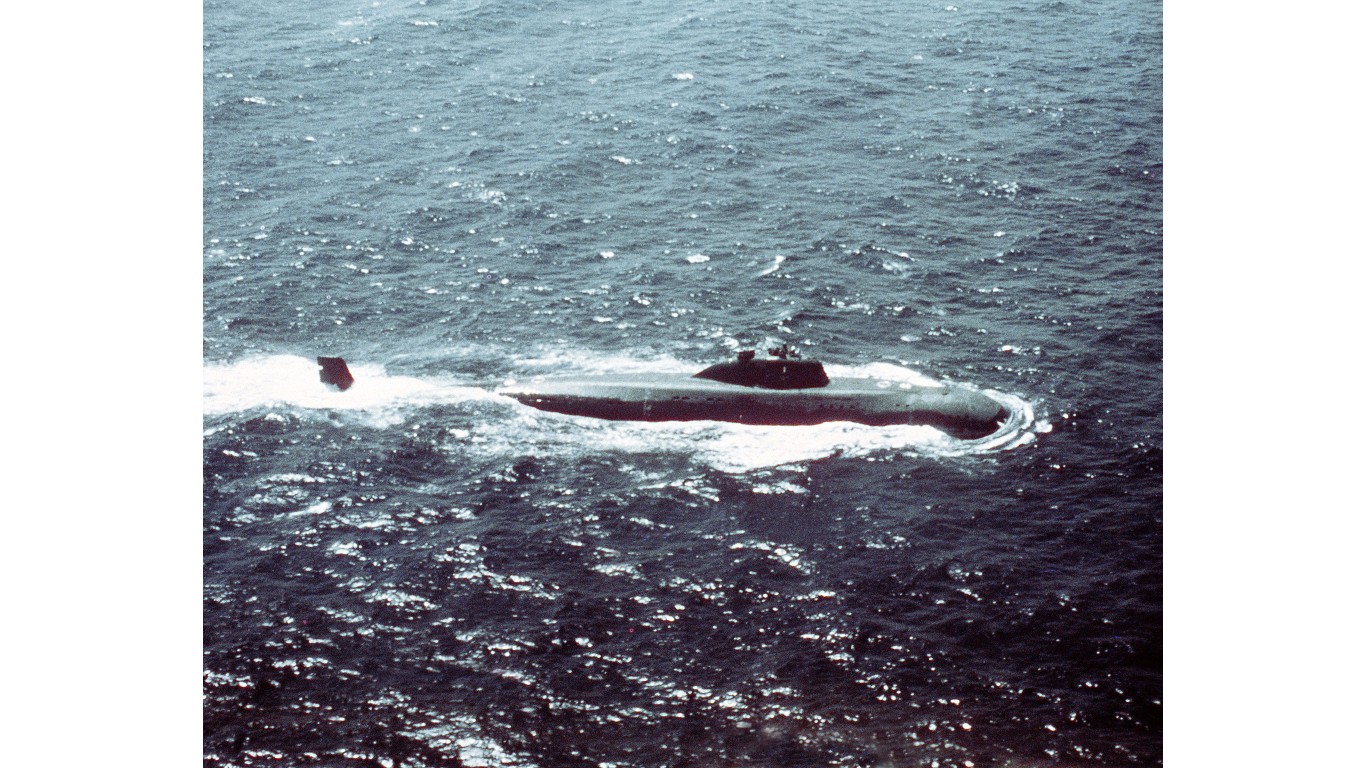
- Number of submarines in active service: 1
- Total naval fleet size: 45 – #15 out of 32 NATO countries
- GlobalFirepower PowerIndex score: 0.2917 – #21 most powerful out of 145 countries
- Submarines in fleet: Kilo-class, Kobben-class
13. Portugal
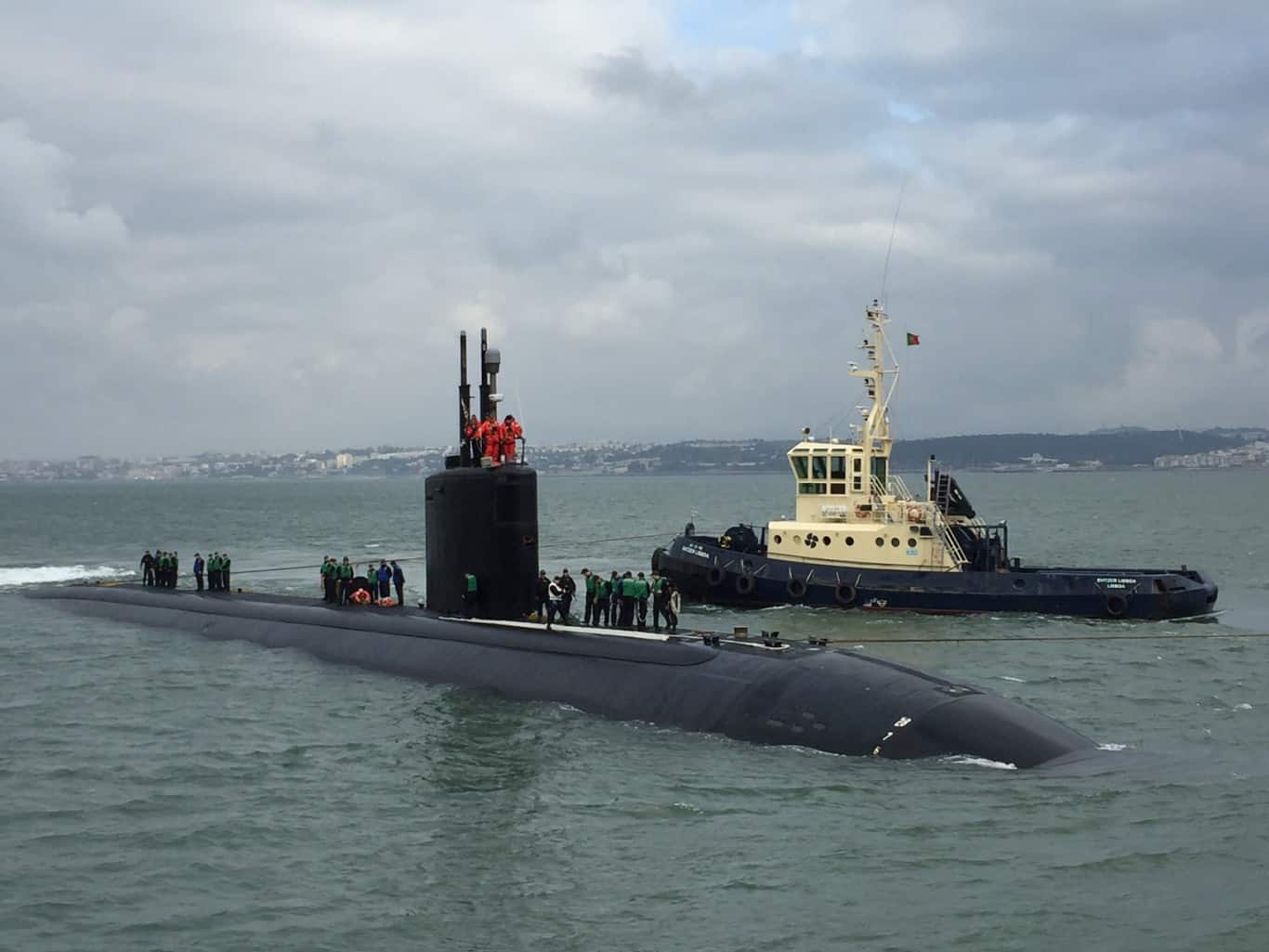
- Number of submarines in active service: 2
- Total naval fleet size: 113 – #10 out of 32 NATO countries
- GlobalFirepower PowerIndex score: 0.5609 – #38 most powerful out of 145 countries
- Submarines in fleet: Type 209, Tridente-class
12. Netherlands

- Number of submarines in active service: 3
- Total naval fleet size: 112 – #11 out of 32 NATO countries
- GlobalFirepower PowerIndex score: 0.5644 – #40 most powerful out of 145 countries
- Submarines in fleet: Walrus-class
11. Spain
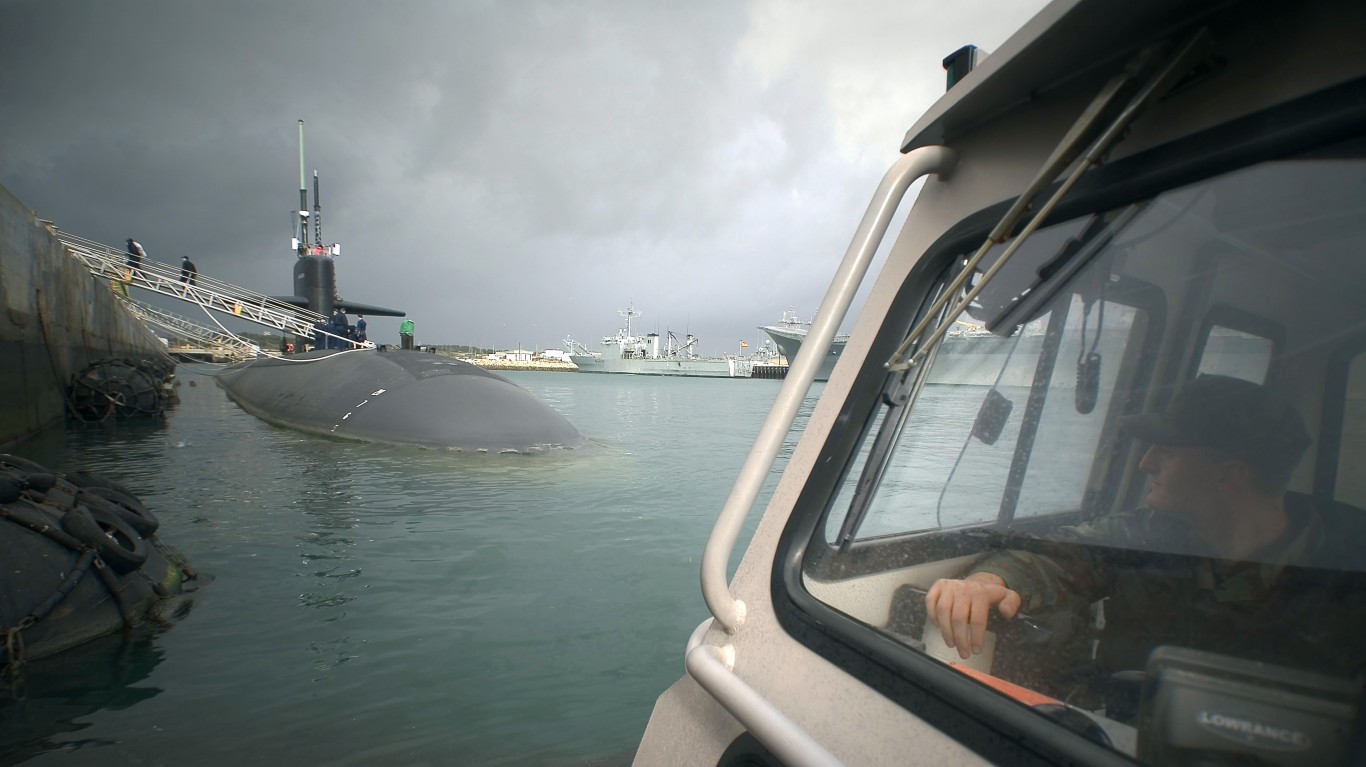
- Number of submarines in active service: 3
- Total naval fleet size: 168 – #7 out of 32 NATO countries
- GlobalFirepower PowerIndex score: 0.2882 – #20 most powerful out of 145 countries
- Submarines in fleet: Peral-class
10. Canada
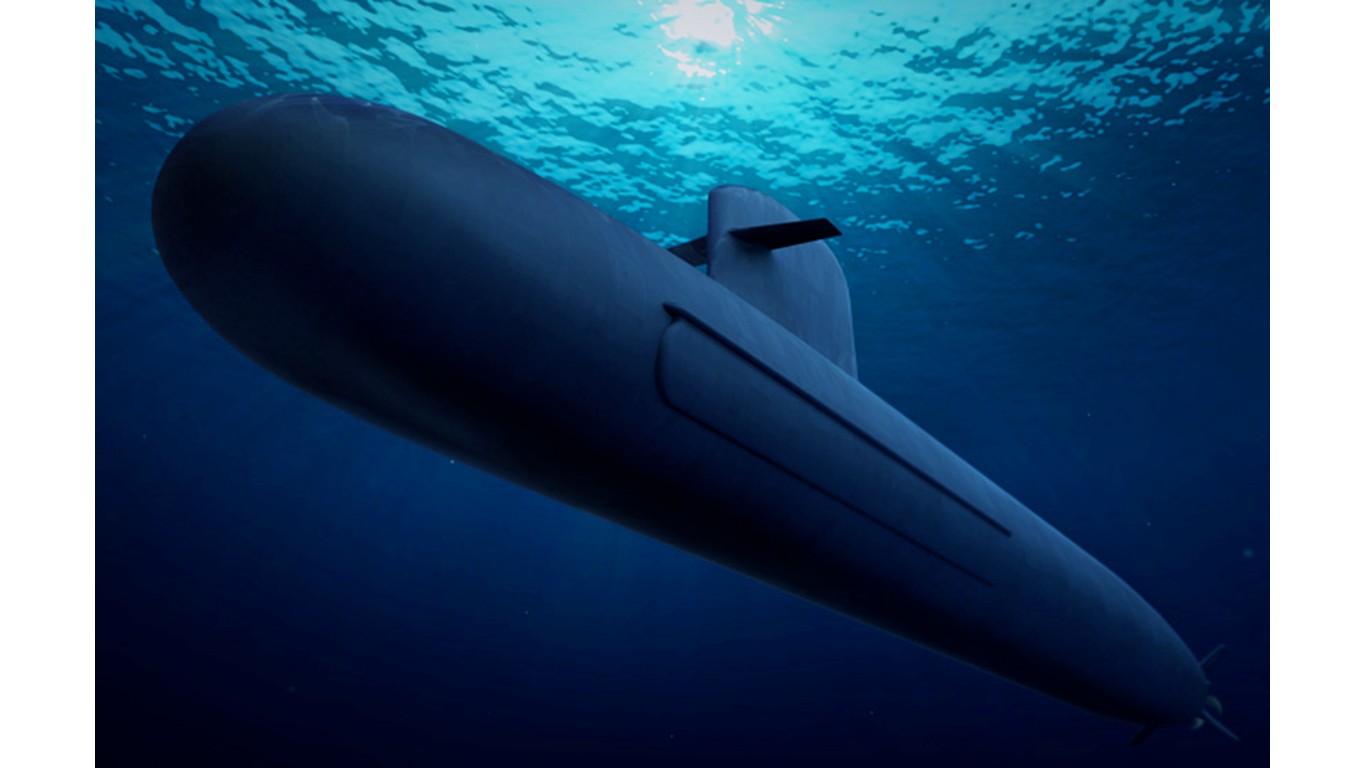
- Number of submarines in active service: 4
- Total naval fleet size: 67 – #13 out of 32 NATO countries
- GlobalFirepower PowerIndex score: 0.3813 – #27 most powerful out of 145 countries
- Submarines in fleet: Victoria-class
9. Sweden
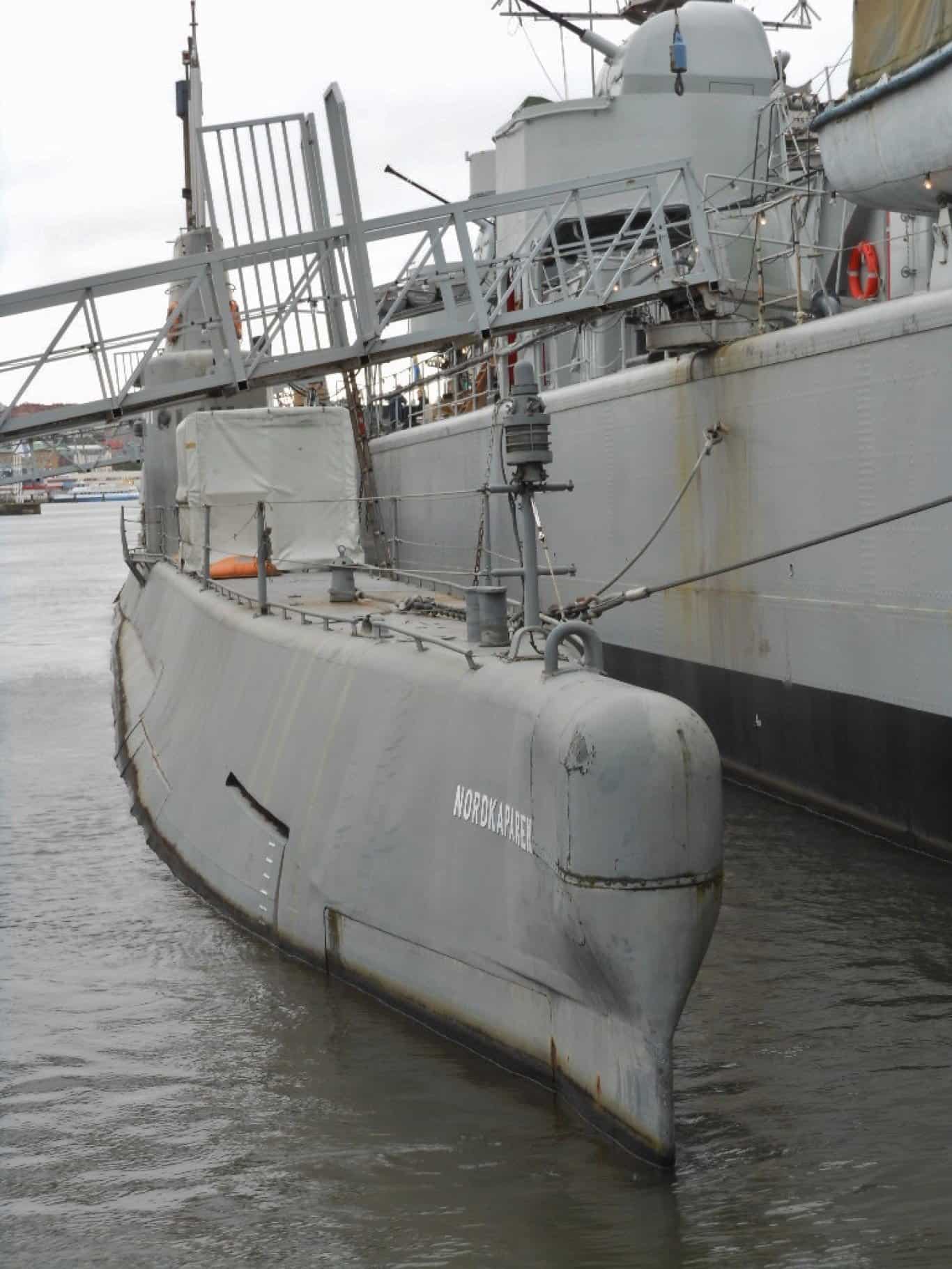
- Number of submarines in active service: 5
- Total naval fleet size: 353 – #2 out of 32 NATO countries
- GlobalFirepower PowerIndex score: 0.4009 – #29 most powerful out of 145 countries
- Submarines in fleet: Abborren-class, Laxen-class
8. Norway
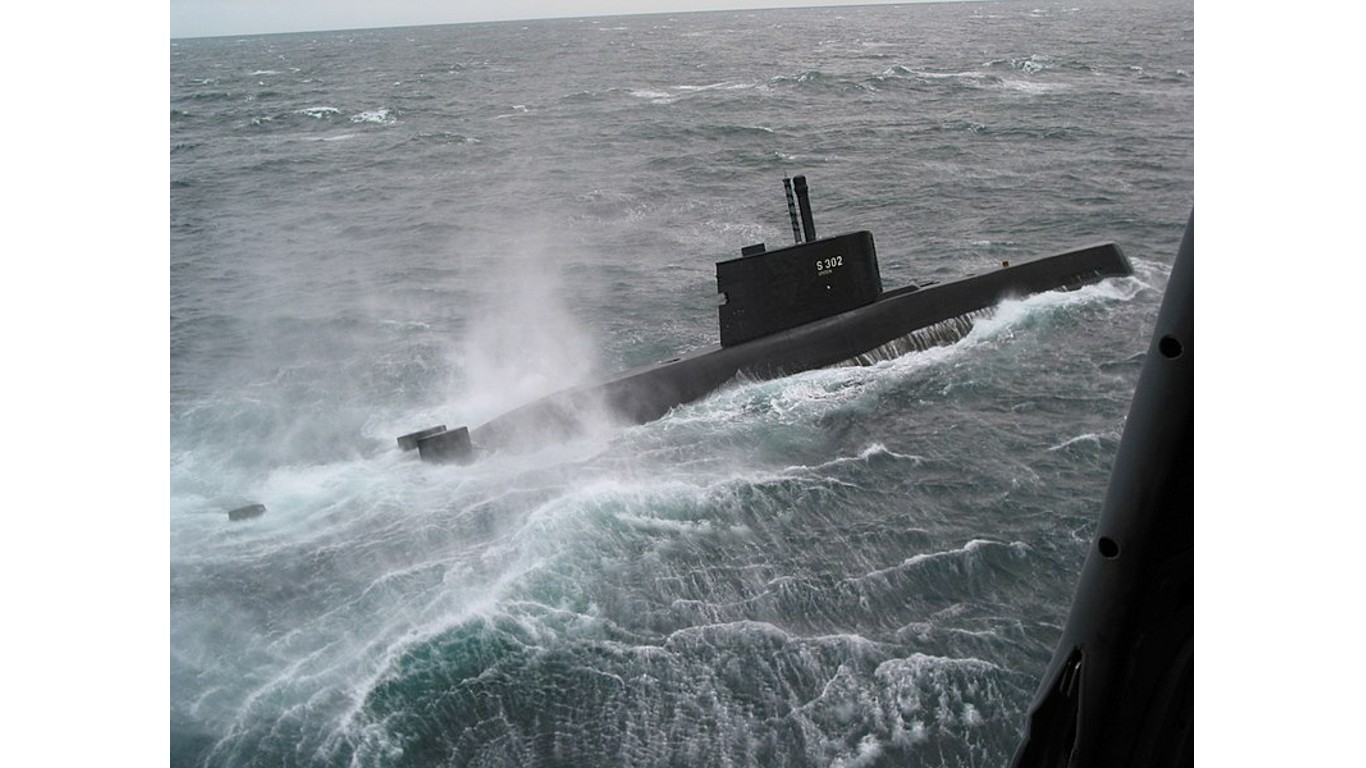
- Number of submarines in active service: 6
- Total naval fleet size: 25 – #18 out of 32 NATO countries
- GlobalFirepower PowerIndex score: 0.5664 – #41 most powerful out of 145 countries
- Submarines in fleet: Ula-class
7. Germany

- Number of submarines in active service: 6
- Total naval fleet size: 64 – #14 out of 32 NATO countries
- GlobalFirepower PowerIndex score: 0.2847 – #19 most powerful out of 145 countries
- Submarines in fleet: 212A
6. Italy
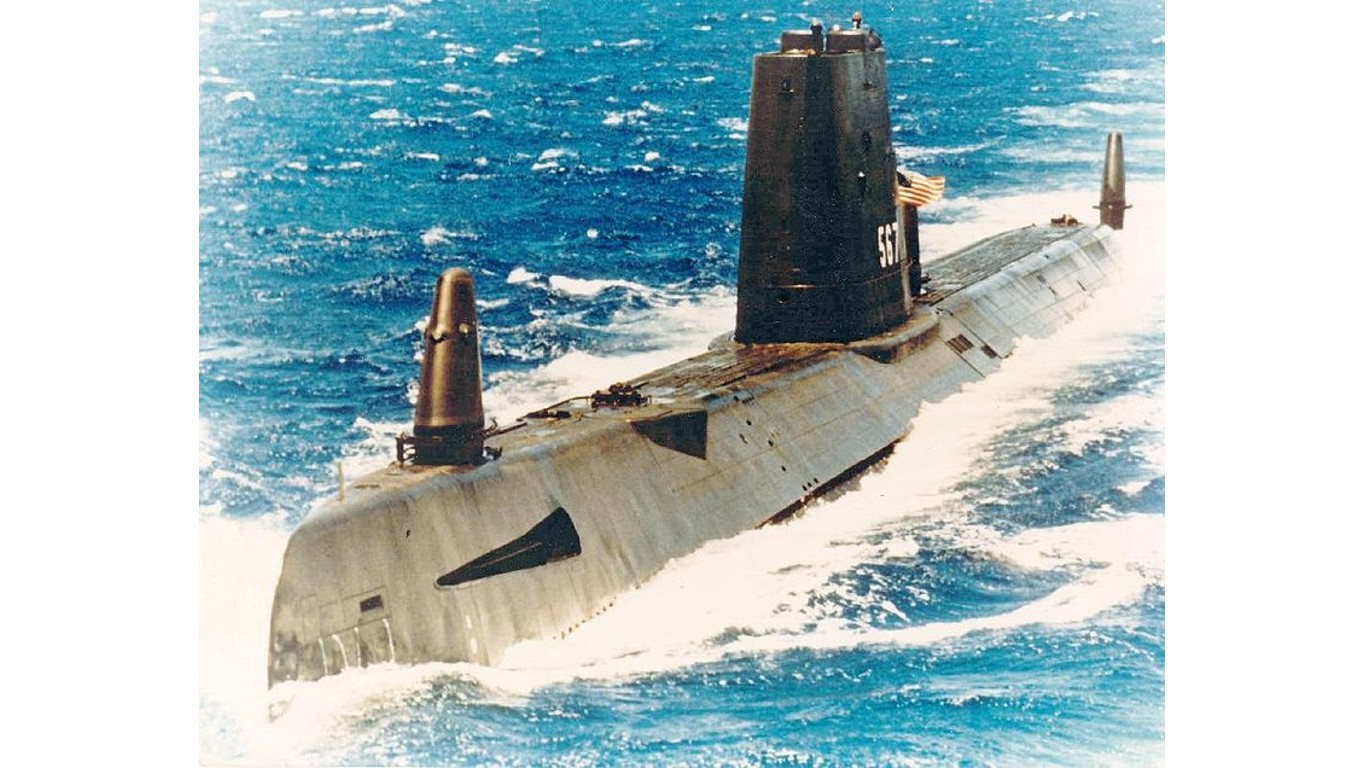
- Number of submarines in active service: 8
- Total naval fleet size: 309 – #3 out of 32 NATO countries
- GlobalFirepower PowerIndex score: 0.1863 – #10 most powerful out of 145 countries
- Submarines in fleet: Argonauta-class, Balilla-class
5. France
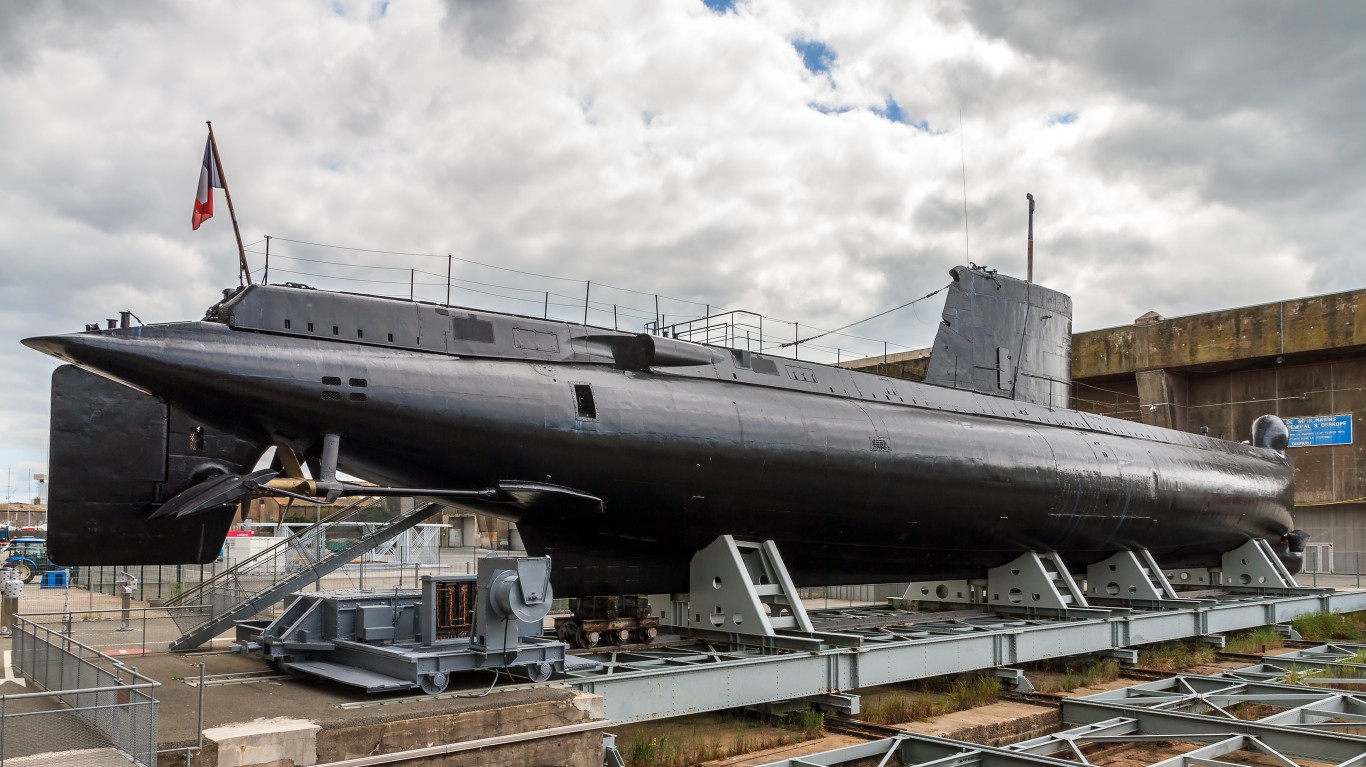
- Number of submarines in active service: 9
- Total naval fleet size: 128 – #8 out of 32 NATO countries
- GlobalFirepower PowerIndex score: 0.1878 – #11 most powerful out of 145 countries
- Submarines in fleet: Rubis-class, Suffren-class, Triomphant-class
4. United Kingdom
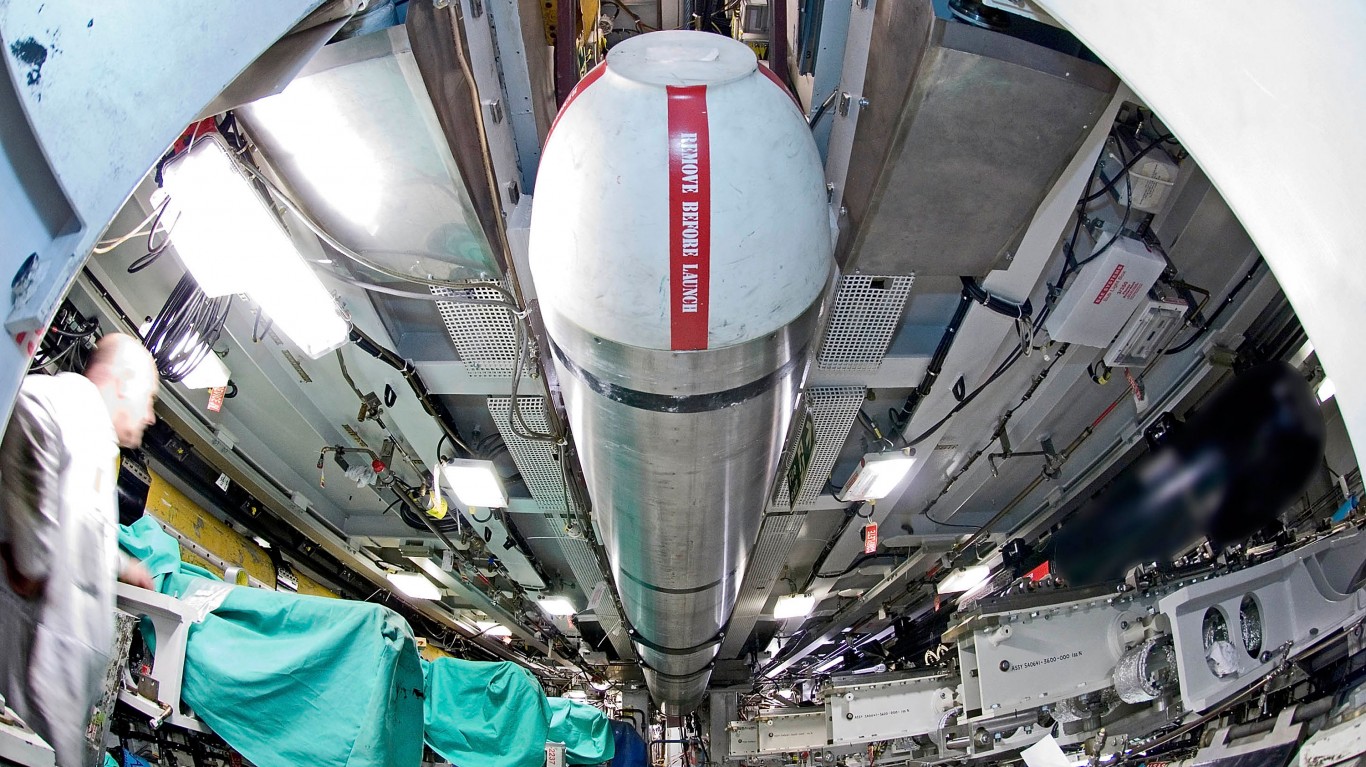
- Number of submarines in active service: 10
- Total naval fleet size: 117 – #9 out of 32 NATO countries
- GlobalFirepower PowerIndex score: 0.1443 – #6 most powerful out of 145 countries
- Submarines in fleet: Vanguard-class, Trafalgar-class
3. Greece
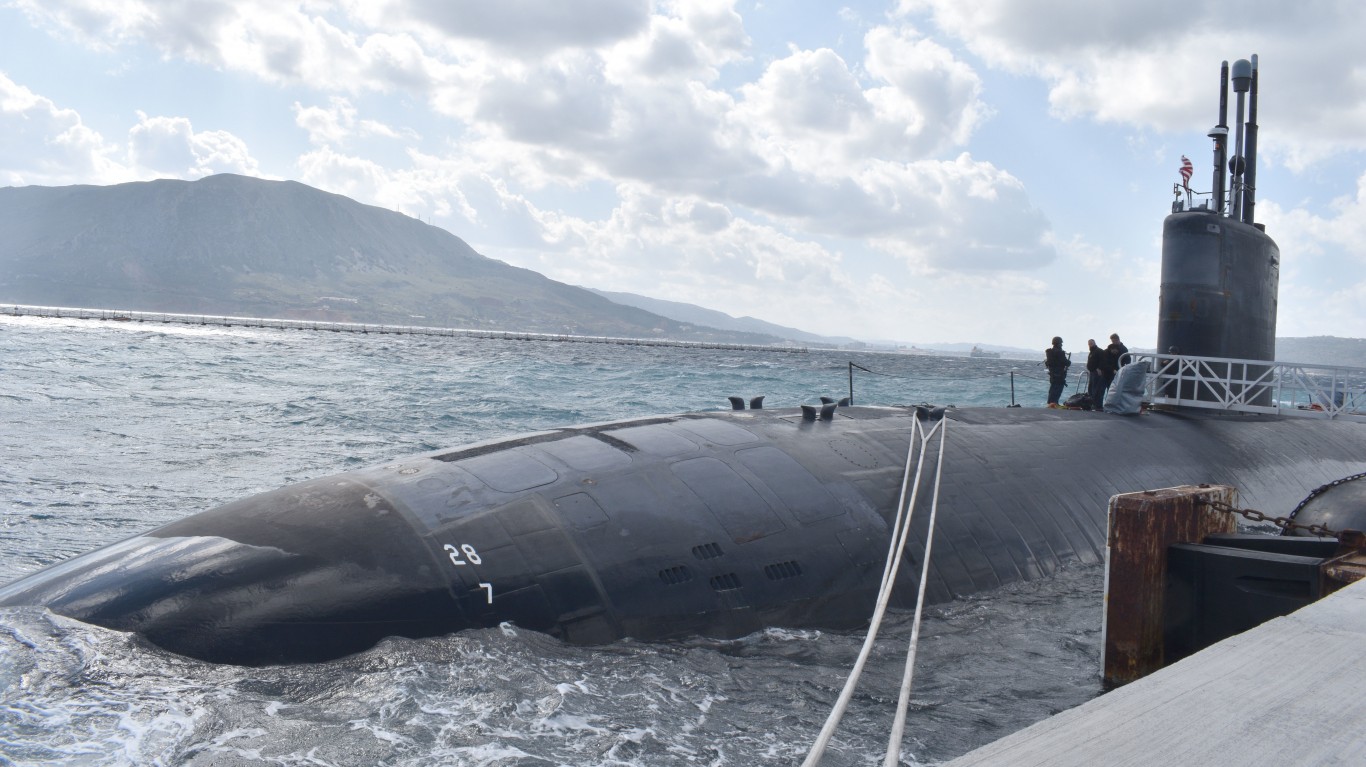
- Number of submarines in active service: 11
- Total naval fleet size: 187 – #5 out of 32 NATO countries
- GlobalFirepower PowerIndex score: 0.4349 – #32 most powerful out of 145 countries
- Submarines in fleet: Glavkos-class, Okeanos-class
2. Turkey
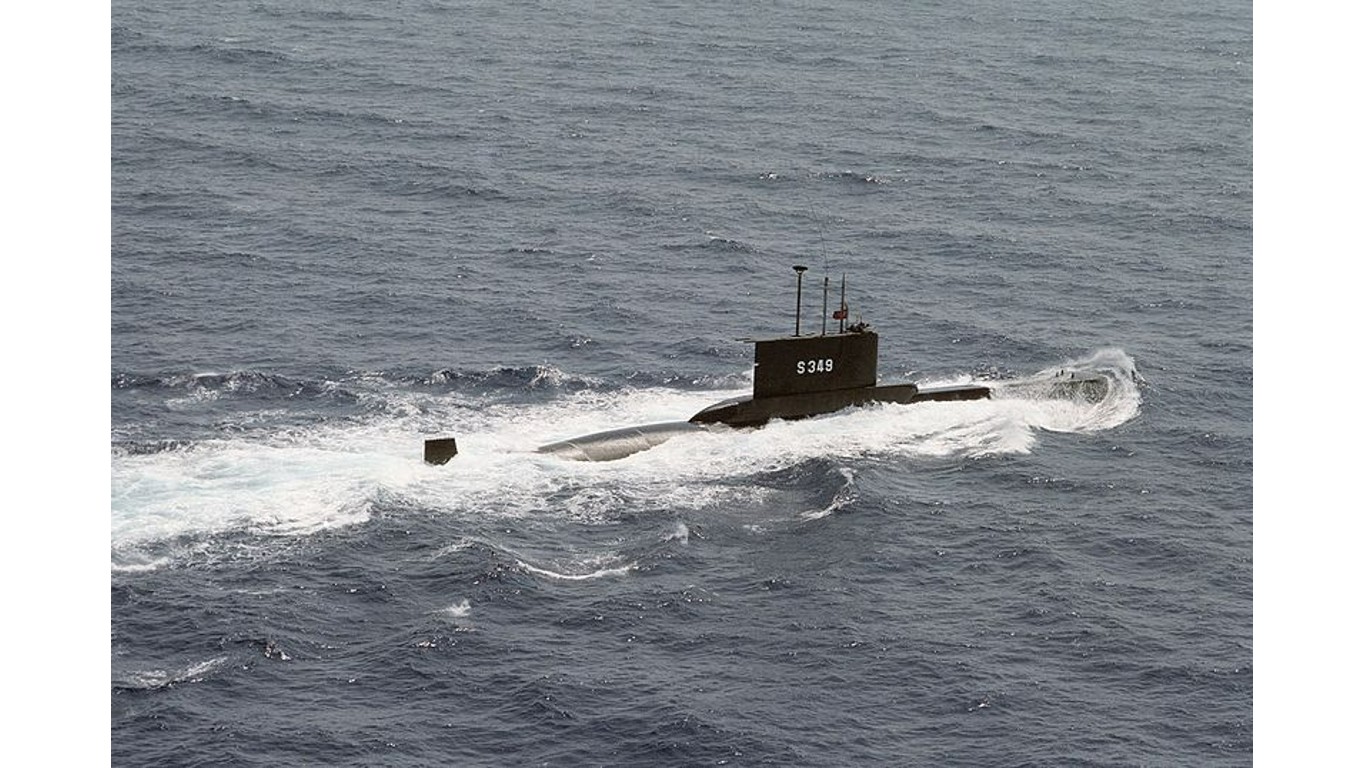
- Number of submarines in active service: 12
- Total naval fleet size: 186 – #6 out of 32 NATO countries
- GlobalFirepower PowerIndex score: 0.1697 – #8 most powerful out of 145 countries
- Submarines in fleet: Balao-class, Dumlupinar, Sakarya
1. United States
- Number of submarines in active service: 64
- Total naval fleet size: 472 – #1 out of 32 NATO countries
- GlobalFirepower PowerIndex score: 0.0699 – #1 most powerful out of 145 countries
- Submarines in fleet: Ohio-class, Los Angeles-class, Virginia-class
Are You Still Paying With a Debit Card?
The average American spends $17,274 on debit cards a year, and it’s a HUGE mistake. First, debit cards don’t have the same fraud protections as credit cards. Once your money is gone, it’s gone. But more importantly you can actually get something back from this spending every time you swipe.
Issuers are handing out wild bonuses right now. With some you can earn up to 5% back on every purchase. That’s like getting a 5% discount on everything you buy!
Our top pick is kind of hard to imagine. Not only does it pay up to 5% back, it also includes a $200 cash back reward in the first six months, a 0% intro APR, and…. $0 annual fee. It’s quite literally free money for any one that uses a card regularly. Click here to learn more!
Flywheel Publishing has partnered with CardRatings to provide coverage of credit card products. Flywheel Publishing and CardRatings may receive a commission from card issuers.
Thank you for reading! Have some feedback for us?
Contact the 24/7 Wall St. editorial team.
